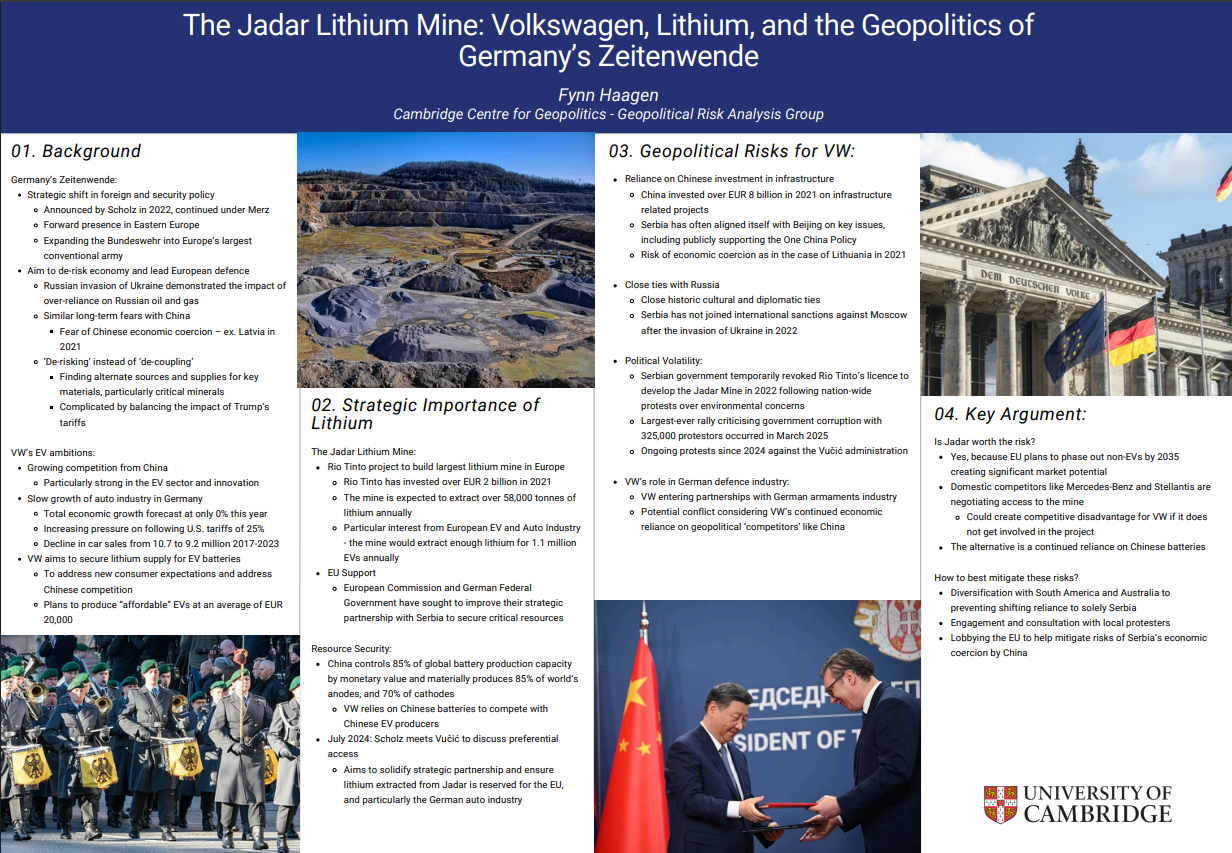The Jadar Lithium Mine: Volkswagen, Lithium, and the Geopolitics of Germany's Zeitenwende
By Fynn Haagen

Presentation Abstract
As Germany’s automotive industry has struggled with low growth, declining sales, and intensifying competition from Chinese EV manufacturers, Volkswagen (VW) seeks to reestablish itself as a market-leader through cost-effective EV production. Central to this strategy is securing a stable lithium supply within Europe to reduce dependence on external sources, particularly China, which currently controls over 85% of global battery production capacity.
Rio Tinto’s planned Jadar Lithium Mine in Serbia, capable of providing lithium for over 1.1 million EV batteries annually, offers VW an opportunity to diversify away from non-domestic battery reliance. Preferential access to Jadar’s deposits would strengthen VW’s global competitiveness.
However, Serbia’s geopolitical status, characterized by economic dependence on China and close alignment with Russia, introduces significant systemic and political risks. Domestic political volatility in Serbia, including widespread environmental protests, further threatens project viability.
Nonetheless, diversifying European lithium sources remains essential as demand for EVs is expected to grow in line with the EU’s planned phase-out of petrol and diesel vehicles by 2035. To mitigate VW’s exposure, this presentation recommended that VW simultaneously strengthens its ties with lithium suppliers in Australia and South America, advocates for EU-level protections against potential Chinese economic coercion in Serbia, and actively engages with local stakeholders to improve the project’s reputation amongst the Serbian public.
About the Author

Fynn Haagen is a graduate from the MPhil in Politics and International Studies at the University of Cambridge. Having grown up in Germany, the US, the UK, and China, he focused his studies on the politics of China and Sino-European relations. Following his time at the Cambridge Centre for Geopolitics and work experiences with the UK National Committee on China, Franklin Center, and Allianz's government affairs team in Washington D.C., he aims to pursue a career in political risk and strategic advisory, helping organizations navigate complex international environments, assess geopolitical risks, and make informed decisions.
